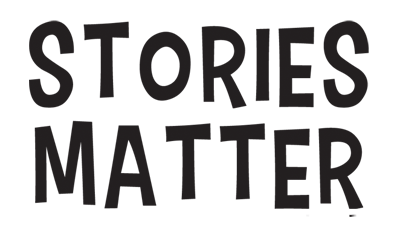Resources
Stories Matter Resource and Activity Book - Downloadable PDF
School Library Journal Diversity and Cultural Literacy Toolkit
CBC (Children's Book Council) Diversity Initiative
GLOSSARY
Definitions:
Race: physical differences that groups/cultures consider socially significant From the “Statement on Race” (1998) by the American Anthropological Association: “With the vast expansion of scientific knowledge in this century, ... it has become clear that human populations are not unambiguous, clearly demarcated, biologically distinct groups. [...] Given what we know about the capacity of normal humans to achieve and function within any culture, we conclude that present-day inequalities between so-called ‘racial' groups are not consequences of their biological inheritance but products of historical and contemporary social, economic, educational, and political circumstances.”
Ethnicity: shared culture (language, ancestry, religion, beliefs, practices)
Gender: A person's internal sense of self as male, female, both or neither (gender identity), as well as one's outward presentation and behaviors (gender expression). Gender norms vary among cultures and over time
Sexual Orientation: sexual identity in relation to the gender to which they are attracted
Socioeconomic Class: economic and sociological measure of an individual's/family's economic and social position in relation to others, based on income, education, and occupation
Diversity is defined as the differences between people. Diversity can be real or perceived differences between people. These differences include but are not limited to race, gender, sexual orientation, religion, and socioeconomic status. In a diverse world, people acknowledge the differences that exist among individuals.
Multiculturalism is more complex than simply noticing the diversity or differences that exist in society. Multiculturalism focuses on being inclusive and understanding, respecting, and acknowledging unequal power in society. Furthermore, people are aware of the advantages or disadvantages of being a particular, race, gender, sexual orientation, religion or socioeconomic status in society. In a multicultural world, people accept and embrace the differences of others into their lives.
http://hybridparenting.org/whats-the-difference-between-a-diverse-world-and-a-multicultural-world
Stereotypes involve generalizations about the "typical" characteristics of members of the groups; exaggerated belief A prejudice is an opinion, prejudgment or attitude about a group or its individual members.
Discrimination is actual positive or negative actions toward the objects of prejudice.
